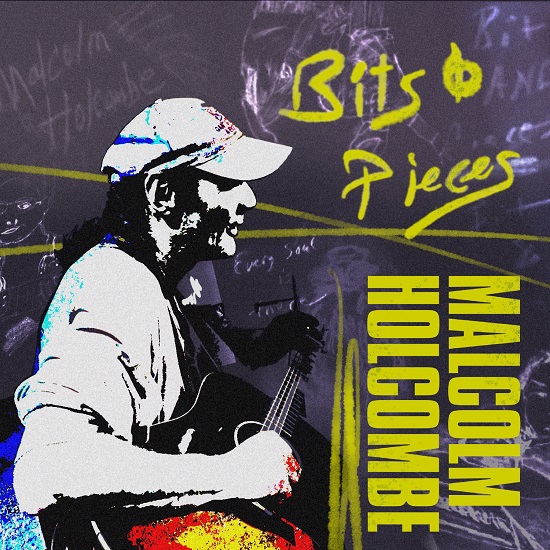
It’s easy to see why Malcolm Holcombe is admired by so many songwriters. His lyrics are economical, perhaps even terse at times, conveying ideas and stories by hints and allusions rather than as a simple narrative and creating rhythmic textures with his finger-picking style. The album’s a two-hander with Jared Tyler supplying tonal colours to Malcolm’s songs (as he has for nearly twenty-five years) with a wide variety of instruments including dobro, lap steel, baritone guitar, tenor banjo, mandola and percussion. Malcolm’s finger-picking and Jared’s backing and fills give the songs a rhythmic complexity that emphasises the starkness of the lyrics.
‘Bits & Pieces’ is an album where Malcolm takes a long look in the rear-view mirror at the times he’s enjoyed and the times he’s survived; there’s a reason for this. Malcolm was diagnosed with cancer in 2022 and decided to record these songs straight away because of the uncertain future. He’s now a cancer survivor as well and this is referenced in ‘Bootstraps’ with the lines “blood bleedin’ in your stomach, saline flowin’ your veins”. Malcolm’s lyrics can be oblique, leaving you wondering whether you’re chasing the right reference, although it’s clear that ‘Eye of the Needle’, ‘Rubbin’ Elbows’ (with the COVID reference) and ‘Another Sweet Deal’ are talking about hucksters and grifters and possibly even the Trump family. You can find a few religious references in there as well, in ‘Eye of the Needle’ mentioned above, ‘Bring to Fly’ and ‘Conscience of Man’. Sometimes you need to delve a little to unpick the references, but it’s always worth the effort.
There are a couple of standouts for me and they’re side by side on the album. ‘The Wind Doesn’t Know You’ takes a whistle-stop tour through Malcolm’s past (‘lock the doors and windows turn the music up louder, from the eighties to the nineties from the pills to the powder’) before acknowledging that in the grand scheme of things, we play a very small part. ‘Conscience of Man’ hints at the early Eagles albums in its arrangements and harmonies as it rails at the American right wing before admitting that redemption might just be possible. And the theme of redemption suffuses the album’s closer ‘Bring to Fly’ to end the album on a positive note.
If you already know Malcolm Holcombe’s work, you’ll find this a very satisfying album. If you don’t know his work, then this is a pretty good place to start.
‘Bits & Pieces’ is out now on Proper Music/Need To Know.
Here’s the lyric video for the album’s title song:
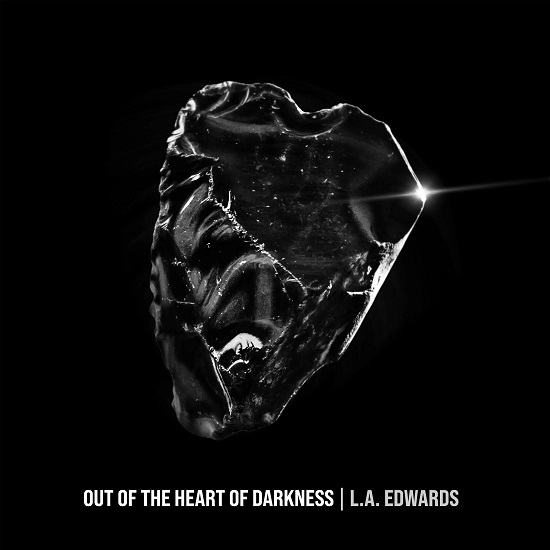
Imagine driving along the freeway in the early eighties. The sun’s shining, the roof’s down and the radio’s tuned to the local FM station. You could be listening to any song from the L.A. (Luke Andrew) Edwards album ‘Out of the Heart of Darkness’. Unfortunately the press pack didn’t come with a time machine, so it was a Skoda on the A12 but at least the sun co-operated. The album’s packed with nine classic FM style rock songs influenced by the bands of the late seventies and the early eighties mixed with Luke Edwards’ acoustic folk roots to create a widescreen sound that’s difficult to resist.
The album starts with a haunting spoken intro from a child in some sort of distress before launching into ‘Little Boy Blue’ which opens with the album’s trademark jangling guitars overlaid with a synth line. The chiming guitars, harking back to Tom Petty, The Byrds and even the Mersey Sound are a constant throughout the album and L.A.’s slightly nasal intonation emphasises the Tom Petty connection (his first solo album was produced by former Heartbreaker Ron Blair) and there are hints of other influences as well. Creedence Clearwater Revival and the Laurel Canyon groups; Neil Young, Eagles and so on, but there are a few surprises as well.
Most of the musical stylings are standard rock band arrangements (drums, bass, guitars and keys) but there are a few surprises as well. ‘Already Gone’ (not an Eagles cover) begins with a swirling Wurlitzer prelude before the sticks click and the band blasts into the song. There’s a good use of dynamics throughout the album as songs build up gradually and there are plenty of breakdowns to vary the tempo and power. ‘Stick to You’ is another interesting blend of styles, combining L.A.’s earlier folk roots with rock instrumentation and some tribal floor toms to create something that edges into Waterboys territory.
There’s plenty of novelty in the combinations of styles across the album, but there are a few of the old tricks as well including the squalling feedback intro on ‘Now You Know’ and the twin lead guitars opening ‘Time to Go’. There’s even the unapologetic drug references of ‘Hi Rite Now’; it’s got all of the ingredients for a classic rock album.
‘Out of the Heart of Darkness’ is released in the UK on Friday June 2nd and the band will be touring the UK and Europe in early July.
Here’s the video for ‘Already Gone’:
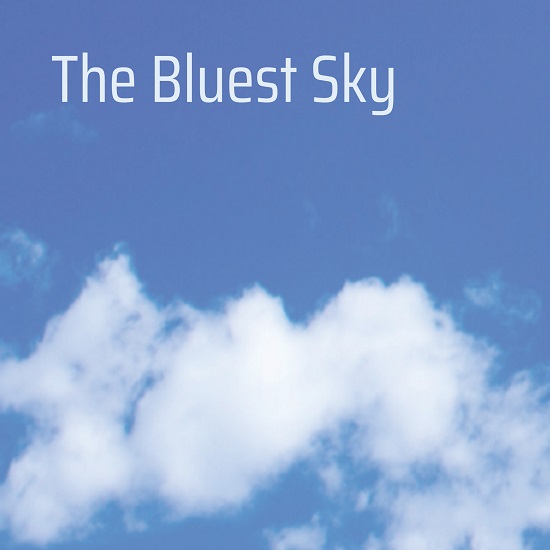
The Bluest Sky is the latest incarnation of Chuck Melchin, following his spell of four albums and two EPs as the cornerstone of celebrated Bean Pickers Union. The self-titled album is an attempt to move on from gentler introspective feel of his earlier work to creating “music that will make you want to drive your car faster”. With the nine songs featured here, he’s definitely succeeded; there’s only one slower, more contemplative, song on the album, but more about that later. The Laurel Canyon influence is strong on ‘The Bluest Sky’ with nods to Eagles, Neil Young and maybe even Evan Dando at times. The album was put together using the post-COVID method of musicians recording parts in their own studios before being mixed and mastered by Dave Westner; the results are organic and seamless.
The opening song, ‘Belly to the Bar’ sets the tone for the rest of the album with a country rock feel driven along by a pair of electric guitars under Melchin’s slightly fragile vocal as the story unfolds of a character trying to avoid being pulled into a rebound relationship. Most of the album’s songs are about personal situations although each has a slightly different twist. ‘The Girl It Took the Universe’ is a metaphysical look at the unseen forces moulding and pulling together two people over the aeons until the time is ripe for them to meet ending on a classic sixties sus4/sus2 progression, ‘Amy Jean’ is a straightforward karma and revenge song with a Southern rock feel that hints at the Allman Brothers’ Band’s ‘Jessica’ and ‘I Am James’ is a gentle country rock story of a man too shy to get himself noticed by a woman. ‘Drive Through Confessional’, with its mainly acoustic arrangement before a soaring electric guitar joins the mix, is a powerful piece of hometown nostalgia that turns around with the realisation that that reason for going back is the death of a loved one; it’s a powerful piece of work.
The two songs that step outside the personal may or may not be connected. The slow and melancholy ‘New Berlin’, its sadness punctuated by pedal steel fills, is a snapshot of a smalltown American town destroyed by a world economy that values only profit and scale; things can only get worse. There are a couple of references to classic American songwriters, John Fogerty’s ‘The Old Man Down the Road’ and Townes Van Zandt’s ‘Waiting Round to Die’ in the lyrics. It’s a powerful song with a storyline that could ultimately lead to the apocalyptic vision of ‘Bunkhouse’, the album’s penultimate song. The story of an unspecified rebellion and survival skills is played out over a Crazy Horse-style backing to maximum sinister effect.
Chuck Melchin and his collaborators have achieved the primary aim of making us want to drive faster while creating a bunch of varied and beautifully crafted songs. Job done.
‘The Bluest Sky’ is out now.
This is ‘Bunkhouse’:
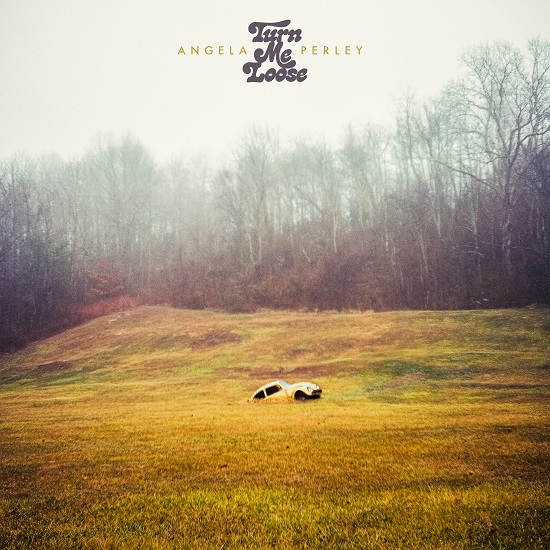
Angela Perley isn’t someone who wears her influences lightly; from sixties guitar rock through seventies country rock (Fleetwood Mac perhaps) to jangly eighties bands like The Bangles, The Go Gos and Katrina & The Waves. There’s also a touch of country/Americana thrown in, particularly on the penultimate song, ‘Holding On’, with its over-driven slide guitar and the pedal steel that adds just a tinge of blue to the entire album. Apart from the album’s final song, the solo piece ‘Wreck Me’, the songs are all fairly big productions with guitars facing off against each other, keys adding different textures and, of course, the sad machine pitching in with plaintive fills. To get the best from ‘Turn Me Loose’, you probably need to listen to it on the freeway (which sounds cool in a way that motorway never will) with the electric guitars playin’ way up loud.
From the opening song, ‘Plug Me In’, which channels the country rock of Eagles’ ‘Take It Easy’, adds a middle finger attitude and the urge to be moving which runs through the whole album with references to cars, planes, motorcycles, taxis, planes and even roller skates. Angela Perley’s desperate to be on the move; she needs to go somewhere, anywhere. Maybe it’s the inevitable reaction to a couple of years of movement restrictions after a long career as a touring musician – it’s certainly a theme that permeates the album.
‘Ripple’ is where Seventies glam-rock meets Lynyrd Skynyrd/Allman Brothers boogie; the riff is simple and the song’s driven along by powerhouse drumming as Angela sings about some of the things she wants to escape (including the vampires of the music business). Her influences are very clear musically and lyrically on the Sixties-inspired flower power-evoking ‘Near You’ with the reference to a “mellow fellow” and an almost English intonation in the lead vocal that harks back to the Sixties British invasion era.
‘Turn Me Loose’ is a collection of ten diverse songs pulled together by the combination of clean and over-driven guitars, Angela Perley’s musical influences and an itch to get out there and experience life again. You should listen to it on Route 66 in the summer, but you might have to make do with the M6 in spring. Either way, it’s going to sound great.
‘Turn Me Loose’ is available now from www.angelaperley.com.
Have a listen to the foot-stomping ‘Ripple’ here:
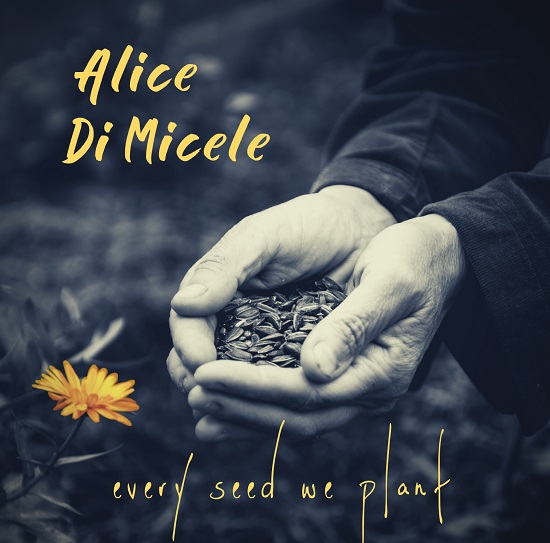
Three decades in the business and fifteen albums is quite an impressive achievement. ‘Every Seed We Plant’ is the next step; album sixteen. The good news is that Alice’s creativity is undimmed after that time and her voice is still as powerful as ever over the whole of its wide range. The album displays a wide range of styles from the slow country waltz feel of ‘Sweet Elaine’ to the soulful rock of the album’s opener ‘For Granted’. The styles may vary but there are several themes related to the last two years running through the album that create a sense of unity across the piece. Apart from the obvious references to grief, there’s anger, redemption, joy and a sense of rebirth. The album’s opening and closing songs both have references to planting and nurturing.
The two songs that best demonstrate the emotional range of the album are ‘Dispatch’ and ‘Sweet Elaine’. ‘Dispatch’ is a very angry song about the real events that led to the killing of a black retired Marine, Kenneth Chamberlain, in his home in White Plains, New York. The story’s told from the point of view of the dispatcher responsible for sending the police to activations of LifeAid medical alarms, who was called by Chamberlain asking the police to withdraw. It’s a very angry song about something that’s still way too common in America today, told in a very compelling way. ‘Sweet Elaine’ is a slow country-rock waltz telling the beautiful story of a woman and a dog who profoundly change each other’s lives. The slight vibrato on the vocal and the Eagles-style vocal harmonies create a happy and relaxed feel that perfectly matches the positive narrative.
The album opens with ‘For Granted’, a soulful rock groove in a seventies style that evokes Maggie Bell or even an in-tune version of Janis Joplin. It nods in the direction of Etta James’s ‘I’d Rather Go Blind’ (the unnecessary cover of choice for many a second-rate blues-rock band) with a rock band line-up including organ and piano (with the obligatory triplets of course). Alice’s voice is so versatile that there are comparisons to be made with Joni Mitchell, Rickie Lee Jones and many others. The band arrangements are equally diverse, with ‘Jersey’, not surprisingly, having a hint of the E Street Band as it takes a hammer to the New Jersey stereotypes that Alice has probably heard for most of her life.
As a whole, the album takes a journey through the various stages of recovery from the pandemic and its associated woes from grief to rebirth, with the final two songs, ‘Sweet Elaine’ and ‘’Every Seed’ looking forward to a more hopeful future. It’s a lovely example of creating beautiful art from unpromising raw materials.
‘Every Seed We Plant’ is out now in the UK on Alice Otter Music (AO116).
Here’s the video for the title song:
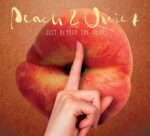 It’s drizzling, freezing and absolutely miserable in the UK at the moment, so that would be the perfect time to listen to an album straight out of 1970s Laurel Canyon via 2020s British Columbia. There are more influences on the album than the Jackson Browne/Eagles/Linda Ronstadt coterie but the album still glows with sunshine of The Golden State, even though its creators Heather Read and Jonny Miller have fairly nebulous Californian connections but, hey, the first two Eagles albums were produced by Glyn Johns at Olympic Studios in London, while Peach & Quiet’s “Just Beyond the Shine” was put together with the help of producer and multi-instrumentalist Steve Dawson in Nashville, Toronto, Vancouver and Victoria. All of the songs are written by Heather, Jonny or both apart from the album’s closer, “Seven Daffodils”, written by Lee Hays and Fran Moseley.
It’s drizzling, freezing and absolutely miserable in the UK at the moment, so that would be the perfect time to listen to an album straight out of 1970s Laurel Canyon via 2020s British Columbia. There are more influences on the album than the Jackson Browne/Eagles/Linda Ronstadt coterie but the album still glows with sunshine of The Golden State, even though its creators Heather Read and Jonny Miller have fairly nebulous Californian connections but, hey, the first two Eagles albums were produced by Glyn Johns at Olympic Studios in London, while Peach & Quiet’s “Just Beyond the Shine” was put together with the help of producer and multi-instrumentalist Steve Dawson in Nashville, Toronto, Vancouver and Victoria. All of the songs are written by Heather, Jonny or both apart from the album’s closer, “Seven Daffodils”, written by Lee Hays and Fran Moseley.
The sun breaks through from the opening notes of the Byrds/Tom Petty-inflected opener, “Empty to Fill” and its poetic exploration of the contradictions and complexity of human beings. From there it’s almost constant Oakley and Ray-Ban stuff, with the exception of the slightly menacing Southern-influenced “Shoreline After A Storm” likening a bad relationship to a storm – they can both inflict terrible damage and leave a messy aftermath. There’s a little hint of “I Put A Spell on You” in there as well.
The songwriting is superb throughout, from the fairly straightforward love song “There’s A Very Good Chance” with its lovely Everlys harmonies to the more complex “Flowers”, which is based on the children’s book “Mr Cat and the Little Girl” which deals with love and loss which has a folky Byrds styling with a relatively complex arrangement that even features a bit of glockenspiel, courtesy of Steve Dawson.
There are themes running though the album; lyrically it’s all about love, whether it’s love for a partner who’s on stage every night (“Lucky in Love”) or for a place (“California Way”). The song arrangements are in the Eagles/Linda Ronstadt mode with layers of electric and acoustic guitars and some absolutely gorgeous harmonies, either as duets or as multi-tracked layers. There’s absolutely nothing out of place on this album.
And, as I finish this review, there’s no rain, and the sun is shining; that was pretty impressive work, guys. This album’s combination of superbly-crafted songs and subtle Laurel Canyon-era arrangements is the perfect antidote to winter on either side of the Atlantic.
“Just Beyond the Shine” is released on January 15th 2012 on Peach & Quiet Music (P&QCD001).
Here’s the video for “Empty to Fill”:
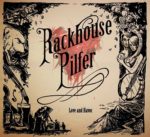 ‘Why don’t we open the album with a song about busting out of prison, I mean it worked for Thin Lizzy, didn’t it?”. Well, it certainly did and just as “Jailbreak” set the tone perfectly for the album of the same name, “Dust on the Road” does the same for Rackhouse Pilfer’s “Love and Havoc”. The frenetic banjo and fiddle interplay drives along a tale of freedom or death that’s only resolved with the half-speed coda signifying success. By the end of the song, you know you’re in good hands. Rackhouse Pilfer is an Irish six-piece outfit and, if I can’t use the catch-all term Americana, I’d have to say they play original songs influenced by country, bluegrass and a hefty dose of seventies Laurel Canyon troubadours and another hefty dose of homegrown Irish fun. If you can carry that off, you’ve got something a little bit special and they don’t just carry it off, they heave it into the air and juggle it with one hand. OK, I admit it, we’re a bit behind the curve on this one; it was released in 2014 but it’s just popped up in the Riot Towers inbox ahead of a Rackhouse Pilfer UK tour.
‘Why don’t we open the album with a song about busting out of prison, I mean it worked for Thin Lizzy, didn’t it?”. Well, it certainly did and just as “Jailbreak” set the tone perfectly for the album of the same name, “Dust on the Road” does the same for Rackhouse Pilfer’s “Love and Havoc”. The frenetic banjo and fiddle interplay drives along a tale of freedom or death that’s only resolved with the half-speed coda signifying success. By the end of the song, you know you’re in good hands. Rackhouse Pilfer is an Irish six-piece outfit and, if I can’t use the catch-all term Americana, I’d have to say they play original songs influenced by country, bluegrass and a hefty dose of seventies Laurel Canyon troubadours and another hefty dose of homegrown Irish fun. If you can carry that off, you’ve got something a little bit special and they don’t just carry it off, they heave it into the air and juggle it with one hand. OK, I admit it, we’re a bit behind the curve on this one; it was released in 2014 but it’s just popped up in the Riot Towers inbox ahead of a Rackhouse Pilfer UK tour.
“Another Dirty Joke” rattles along in the same light-hearted way with a theme of drunken and stoned escapism, but it’s not just about the craic; there’s a serious side to the album as well. “Me and a Polar Bear” is an uptempo piece with an environmental theme while “Angela” tells the story of a woman who wants to escape a relationship by murdering her partner. You can hear more traditional string band influences on the slow “A Sailing Song” with its mournful unison fiddle and mandolin and the rollicking “Shady Grove”, which gives all of the players a chance to show off their skills with short solos.
And the Laurel Canyon influence? Well “Two Oceans” evokes early Jackson Browne perfectly; the song, the vocal and even the title could have featured on any of his first three albums. You can hear an Eagles influence in the harmony-laden midtempo country-rock of “Calico Sky” and “I’ll Find a Way” (maybe a hint of Bob Seger’s “Against the Wind” in there as well) and “Bright Lights” could be Bernie Leadon era Eagles.
“Love and Havoc” assimilates a huge number of influences, weaves them into a bunch of diverse and memorable songs and tops the mix off with a touch of Celtic good humour. And I’m willing to bet they do a cracking live show, so maybe you should look out for dates near you on their UK tour.
“Love and Havoc” is out now.
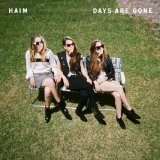 Haim are in a minority of artists who also form part of the majority where influences from chart music over the last thirty years can be heard clod-hopping all over their work but who are also pushing forward musically, and sound strikingly different from their current, retro-obsessed contemporaries. The three twenty-something sisters from LA write their own material and play their instruments, they aren’t an electronic act and neither do they aspire to be urban makeover superstars. But there are some fascinating deep and dark synths here and an R’n’B spirit is shadowing almost every song to the point where it does, albeit briefly, finally jump into the driving seat. “Tango in The Night”-era Fleetwood Mac, Prince, Sheryl Crow, The Police and eighties soft rock are the most dominant and easily-spotted influences for the Haim sisters debut though. Time and again you’ll hear these mentioned in reference to the group but importantly at the core of “Days Are Gone”, is a sound that is all theirs.
Haim are in a minority of artists who also form part of the majority where influences from chart music over the last thirty years can be heard clod-hopping all over their work but who are also pushing forward musically, and sound strikingly different from their current, retro-obsessed contemporaries. The three twenty-something sisters from LA write their own material and play their instruments, they aren’t an electronic act and neither do they aspire to be urban makeover superstars. But there are some fascinating deep and dark synths here and an R’n’B spirit is shadowing almost every song to the point where it does, albeit briefly, finally jump into the driving seat. “Tango in The Night”-era Fleetwood Mac, Prince, Sheryl Crow, The Police and eighties soft rock are the most dominant and easily-spotted influences for the Haim sisters debut though. Time and again you’ll hear these mentioned in reference to the group but importantly at the core of “Days Are Gone”, is a sound that is all theirs.
The first third of the album is home to all four heavily-promoted singles and with the possible exception of the worryingly Shania Twain tendencies of the overly-perky “The Wire” (not forgetting the Eagles “Heartache Tonight” drum intro – Ed), all still sound spring fresh, funky and with plenty of space for instruments and vocals to stretch out and sparkle. “If I Could Change your Mind” has a fidgety, skipping melody line which brings to mind freestyle electro pop from eighties artists like Cover Girls and Lisa Lisa, and the title track, a surprising co-write with UK new-house artist Jessie Ware, has plenty of tension and bustles along with an urgent agenda and rhythm.
It’s on the futuristic R’n’B of the oddly titled “My Song 5” where the band really surprise. If this were the lead single from Beyonce’s near-mythical, possibly forthcoming album or even more excitingly, another attempt at a comeback from Missy Elliott then either would be rightly lauded. Three seconds of dirgy, descending buzz bass and then massive slow pounding drums introduce vocals which mimic Wendy and Lisa doing their Purple Rain residence; dead eyed and dangerous, pitch black promising ‘honey I’m not your honey pie’. A dizzy and delirious middle eight where tight angelic harmonies flip forward and then just disappear and it’s one of the one of the most exciting and weird four minutes you’ll have experienced since the first time you heard “Get Ur Freak On”.
Continuing with the genuinely thrilling and experimental final third of “Days Are Gone” where the sound that we’d already heard from the band is both intensified and stripped away, “Go Slow” is a gorgeous and gently skulking “True Colours” but with all of the sonic fuzz wiped away. “Let Me Go” is the angriest sounding moment here, building from the sixties girl group chants in the dark into a tribal thud and clanking, dubby outro and “Running If you Call my Name” closes the album in a traditional way as a down-tempo mass of drums, guitars and those beautiful harmonies.
“Days Are Gone”, maybe more than anything else, is very welcome at this point in pop culture. Pop music is more female-driven and dominated than ever before; Gaga is eaten by Lana is eaten by Taylor is eaten by Miley. It happens so quickly and all have their place and merit but none sound like Haim. Image, although clearly very much considered, seems less of an issue to the group than the music itself, you can listen to the songs here and you don’t necessarily feel hijacked by a carefully constructed persona and brand as you may do when listening to “Born This Way” or “Video Games” say. This is a charismatic and superior release, real musical talent and love of performing that doesn’t sound cynical or short-sighted. Probably most satisfying of all, you can almost guarantee that this really is only the beginning for Haim and the best is still to come.
Out now.
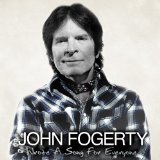 So, what’s this all about then? John Fogerty, former Creedence Clearwater Revival frontman and highly respected solo artist has decided to revisit some of his back catalogue with a few collaborators and throw in a brace of new songs for good measure. It’s not a new idea and it can be either a cynical attempt to cash in on a few good, old songs or a chance to invite fellow musicians to put their stamp on your songs. I’m really pleased to say that “Wrote a Song for Everyone” is a fascinating look at the heritage of one of the great rock songwriters and performers. You have to approach this with an open mind; some of the songs, in their original incarnations, were massive teenage favourites of mine through happy and sad times but there are some radically different interpretations here. The conventional view is that Eagles popularised the country-rock genre, but you could make the same case for Creedence if you take your country influences from New Orleans rather than Bakersfield; just a thought.
So, what’s this all about then? John Fogerty, former Creedence Clearwater Revival frontman and highly respected solo artist has decided to revisit some of his back catalogue with a few collaborators and throw in a brace of new songs for good measure. It’s not a new idea and it can be either a cynical attempt to cash in on a few good, old songs or a chance to invite fellow musicians to put their stamp on your songs. I’m really pleased to say that “Wrote a Song for Everyone” is a fascinating look at the heritage of one of the great rock songwriters and performers. You have to approach this with an open mind; some of the songs, in their original incarnations, were massive teenage favourites of mine through happy and sad times but there are some radically different interpretations here. The conventional view is that Eagles popularised the country-rock genre, but you could make the same case for Creedence if you take your country influences from New Orleans rather than Bakersfield; just a thought.
The album opens with “Fortunate Son”, which is amped-up by the Foo Fighters to a full-on rocker (no surprise there) before Keith Urban delivers a banjo-led country-rock version of “Almost Saturday Night” which takes the song back to its lyrical roots and “Lodi” (probably my favourite John Fogerty song) gets the Status Quo “Rocking All Over the World” treatment with John’s two sons Shane and Tyler Fogerty. Incidentally, this is the only collaboration that Fogerty arranged, pulling rank with his two sons when he didn’t like their country-rock arrangement. “Mystic Highway” is one of the new songs and breaks down into 3 sections, the main song, an instrumental section and an a capella breakdown with a strong feel of the Doobie Brothers “Black Water”. “Wrote a Song for Everyone” features a Miranda Lambert vocal and some exceptional guitar work from Tom Morello; so far so good.
The Zac Brown Band reworking of “Bad Moon Rising” in a Cajun style works less well for me, losing the brooding menace of the original version. “Long as I can See the Light” with My Morning Jacket sticks fairly close to the original, retaining the organ riff which characterises that version and is followed by Kid Rock’s take on “Born on the Bayou”. Apparently it’s now a violation of several federal statutes to record a collaboration album without including a Kid Rock track. The album’s second new song “Train of Fools” follows, exploring similar territory to Springsteen’s recent “Land of Hope and Dreams”. It’s obvious that John Fogerty can still write a good song and the new songs sit very comfortably alongside his earlier work on this album.
“Someday Never Comes” with Dawes has Taylor Goldsmith singing the verses about the things we tell kids (and adults) to shut them up while Fogerty takes the choruses as the gruff old bad guy who tells us that it’s all lies. Bob Seger delivers the Woodstock song “Who’ll Stop the Rain” very much in the style of his 1976 classic “Night Moves”, which works very well. If any singles are to be released from the album, “Hot Rod Heart” should be top of the list. It’s a great driving song (maybe it’s time we had an alternative to the lazy radio programming of Don Henley’s “The Boys of Summer” every time the sun shines for more than five minutes) and the last couple of minutes consists of Fogerty and Brad Paisley trading superb guitar solos and generally having a good time. I bet Paddy McAloon wouldn’t like it.
“Have You Ever Seen the Rain” with Alan Jackson works perfectly with a pure country arrangement with banjo, fiddle and steel guitar filling out the sound and leads us into the last track of the album. I’ve heard many versions of “Proud Mary”, but nothing quite like this. The first verse and chorus are pure gospel with Jennifer Hudson backed by a gospel choir and the wonderful Allen Toussaint before speeding up to a Cajun boogie with the full band and accordion and horns for good measure. I used to think the Ike & Tina Turner version was over the top, but they only used one kitchen sink and I think there’s about three here. It’s a glorious way to end a great album.
John Fogerty has survived in the music business for a long time with all of the usual peaks and troughs that anyone big in the sixties and seventies went through including the publishing disputes, particularly the publishing disputes. The reason he’s still around is that he loves what he does and he’s very good at it. “Wrote a Song for Everyone” is a very, very good album.
Out now on Vanguard (88765487152).


